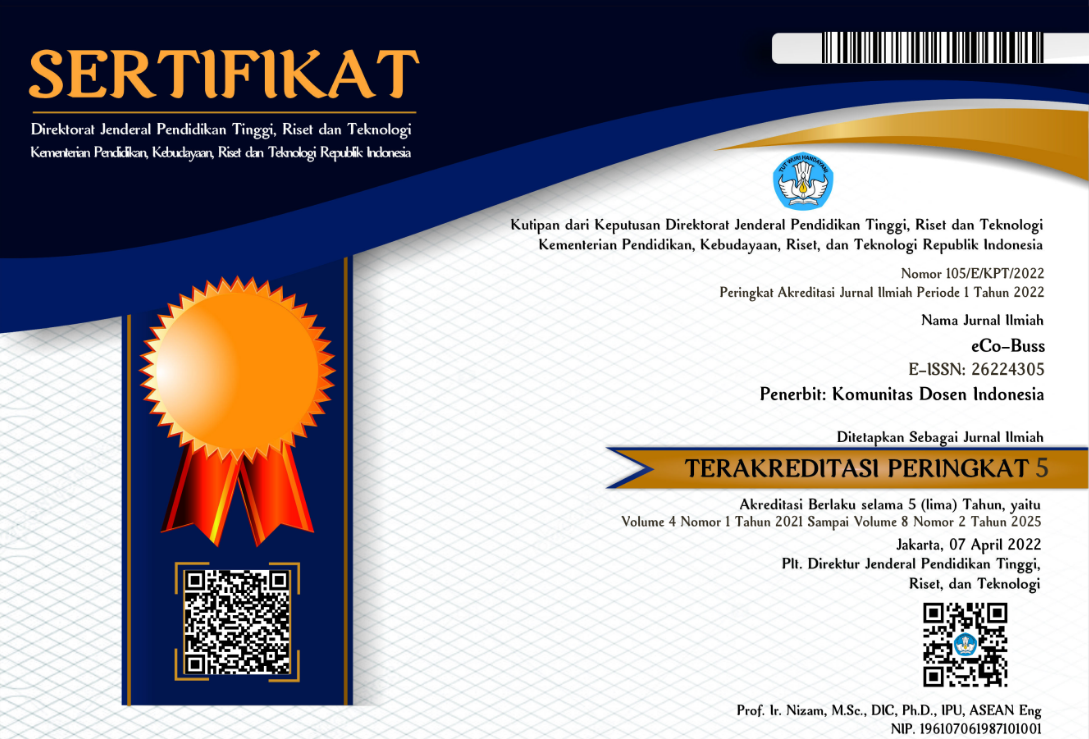Promoting Financial Well-Being through Financial Literacy for Gen Z
DOI:
https://doi.org/10.32877/eb.v7i1.1532
Keywords:
well-being, Financial literacy, financial self-efficacy, Behavior, financial well-being
Abstract
The phenomenon of 'living paycheck to paycheck' among Gen Z has become one of the barriers for Gen Z to be financially prepared for emergencies. This statement is also supported by information from the US National Association of Plan Advisors (NAPA) that Gen Z has the lowest level of financial literacy. This research method implemented is a quantitative descriptive approach. To collect data from 219 domestic migrant college students (Gen Z) in the Jabodetabek Area of Indonesia, the paper uses a survey by questionnaire method with the simple random sampling technique. The study constructs demonstrated acceptable validity and reliability indices based AVE, Cronbach's Alpha, and Composite Reliability (CR) values. Among domestic migrant college students (Gen Z) in the Jabodetabek Area of Indonesia, financial literacy significantly improves their financial well-being. Furthermore, it has been shown that Financial Self-Efficacy does mediate the effect of Financial Literacy on the Financial Well-Being of Domestic Migrant College Students (Gen Z). Thus, the results of this research confirm the mediation effect, establishing that Financial Literacy significantly influences Financial Well-being through the mediating factor of Financial Behavior. Measurement is carried out on the objective measure and the findings of this study can be used as a reference to understand financial literacy optimally.
Downloads
Downloads
Published
How to Cite
Issue
Section
License
Copyright (c) 2024 Okta Prihatma Bayu Putra, Michelle Easter Feren Sambeka, Prischa

This work is licensed under a Creative Commons Attribution-ShareAlike 4.0 International License.






 DOI :
DOI :
 Abstract views: 433
/
Abstract views: 433
/  PDF downloads: 315
PDF downloads: 315

